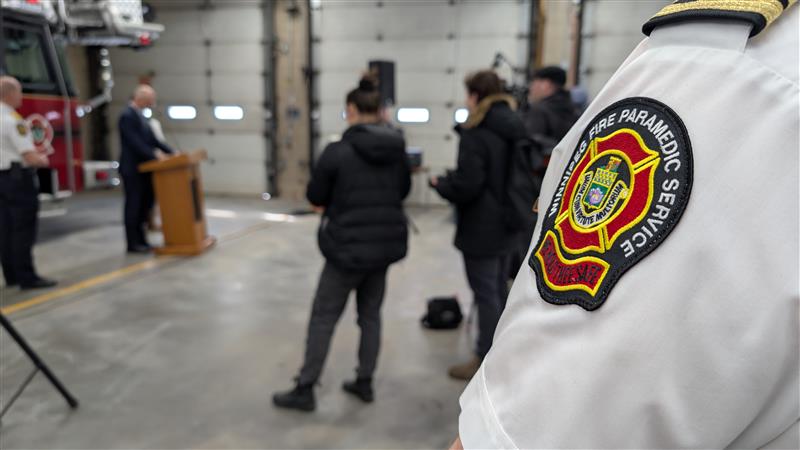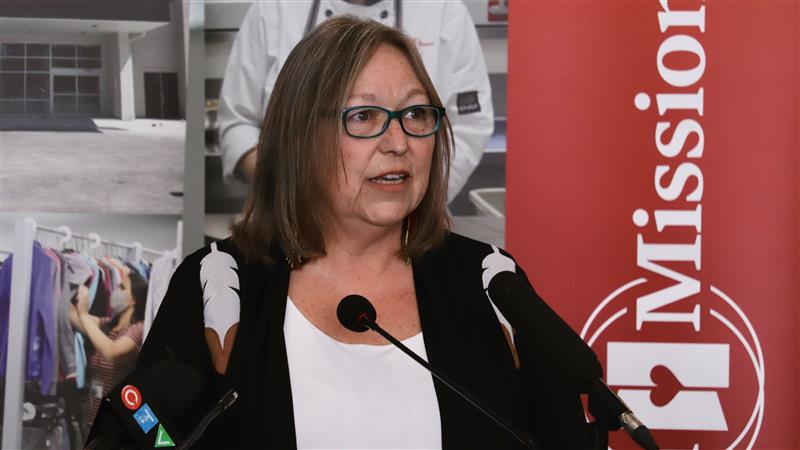Manitoba pre-election budget offers tax cuts, higher spending
Posted March 7, 2023 3:19 pm.
Last Updated March 7, 2023 6:24 pm.
Manitoba’s Progressive Conservative government is loosening its purse strings and promising what it calls record income tax cuts in its last budget before a provincial election.
The fiscal plan put forward Tuesday, with almost $2 billion in new spending, is a marked departure for the governing Tories after several years of fiscal restraint.
“Unlike the budgets of my predecessors where fiscal responsibility ruled the day, Budget 2023 fully reflects the Progressive Conservative roots of our premier (Heather Stefanson),” Finance Minister Cliff Cullen, who was named to the post earlier this year, said in his prepared budget speech.
“This year’s budget provides help when it is most needed. It provides historic help for Manitobans.”
The fiscal plan boosts spending on health care, social services and other areas by an average of close to 10 per cent. Among many new measures in health care, the government is expanding coverage of insulin pumps to all adults with a Type 1 or Type 2 diabetes diagnosis. Until now, coverage has been limited to people aged 18 to 25.
“We’ve heard from families and seniors about the cost shock they experience every time they go to the grocery store or the gas station. Due to inflation and Liberal-NDP carbon tax, too many Manitobans are struggling to make ends meet,” said Stefanson.
Personal and business taxes are also being cut under the budget, although much of them are promised for after the election.
This year, the basic personal exemption – the threshold at which individuals start to pay income tax – will rise to $15,000 from $10,145. The change will save people up to $524.
“I’d say we’re in challenging times. We went through the pandemic together. We recognize that we had to support Manitobans through the pandemic. We’re coming out of that. We’re in a pretty good place economically from a recovery perspective – more Manitobans working (than) before – that allows us additional money to make additional investments, and at the same time, reduce taxes for Manitobans,” said Cullen.
Next year, personal income tax brackets are to be moved higher. The middle bracket would rise to $47,000 from $36,842, and the top bracket would move to $100,000 from $79,625.
The threshold at which employers are charged a tax on their payroll is also to increase next year, to $2.25 million from $2 million. The rate of the payroll tax may also be reduced next year if provincial revenues are higher than expected, Cullen said.
The governing Tories have been trailing the Opposition New Democrats in opinion polls for more than two years. The numbers did not move even after Stefanson replaced Brian Pallister as premier in 2021.
“To me, this cuts to the issue of trust. Who can trust the PCs after seven years of cuts, now in an election year, they’re making these announcements, but which version of the PCs do you think you’re going to get,” said Wab Kinew, leader of the opposition NDP.
Kinew says Manitobans shouldn’t be fooled by what he says is the PC Government ‘playing politics’ claiming the PCs have let Manitobans down through their tenure in government and is now “desperately” trying to sell itself to the voting public.
“Manitobans need help with those monthly utility costs and other bills that just keep piling up, so for the PCs, to try and play politics on an issue like affordability, I think it just reinforced what I’m saying: Manitobans we just can’t trust the P.C.s anymore,” said Kinew.
The drop in support started during the second wave of the COVID-19 pandemic as hospitals struggled to handle a surge of patients. At one point, dozens of intensive care patients were flown to other provinces due to a bed shortage.
“Our No. 1 priority following the pandemic has been addressing the shortage of nurses and other health-care professionals in Manitoba,” Cullen said.
The budget includes previously announced funding aimed at reducing wait times and easing surgery backlogs.
The government can afford the new spending and tax cuts thanks to a rebounding economy and increased federal transfer payments, Cullen said.
Federal equalization payments, which help poorer provinces offer services similar to richer ones, are up by 19 per cent – or $577 million – this year in Manitoba.
-With files from the Canadian Press








